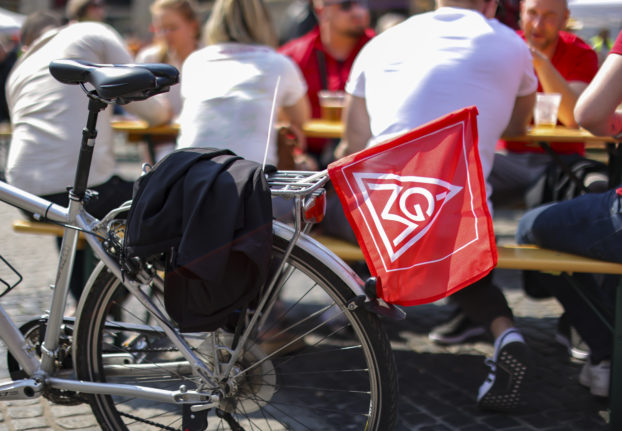"This accord is a turning point," Philip Jennings, UNI Global Union's general secretary, said in a statement.
"We are putting in place rules that mark the end of the race to the bottom in the global supply chain."
The two union umbrella groups — which claim a combined global membership of 70 million — have been working for several years with Bangladeshi labour activists to craft an accord with Western retailers to improve shocking safety conditions at factories.
Efforts were given new urgency by the April 24th disaster in which the nine-storey Rana Plaza factory complex outside Dhaka crumbled, causing one of the world's worst industrial disasters.
The complex, which was found to have seriously violated construction laws, made clothes for a string of global names.
The full list of deal signatories released on Thursday was: H&M, Inditex, C&A, PVH, Tchibo, Tesco, Marks & Spencer, Primark, El Corte Ingles, jbc, Mango, Carrefour, KiK, Helly Hansen, G-Star, Aldi, New Look, Mothercare, Loblaws, Sainsbury's, Benetton, N Brown Group, Stockmann, WE Europe, Esprit, Rewe, Next, Lidl, Hess Natur, Switcher, and Abercrombie & Fitch.
"The companies who signed up are to be applauded," said Jyrki Raina, general secretary of IndustriALL Global Union.
"We are talking improving the working conditions and lives of some of the most exploited workers in the world, earning $38 a month in dangerous conditions," he added.
The Bangladesh Garment Manufacturers and Exporters Association, which represents 4,500 apparel factories, has also welcomed the accord.
The agreement binds retailers to hold independent building and fire safety inspections and pay for repairs.
Industry experts say most garment factories are unsafe as they are housed in converted blocks of flats or complexes such as Rana Plaza, designed to accommodate shops and banks.
Jennings criticized US groups Walmart and Gap for not joining in.
"Walmart, the world's largest retailer, is out of step. By not signing up the Walmart brand sinks to a new low. Equally Gap's refusal to join is a mistake that shoppers will not forget. We will make progress without them," he said.
Walmart, however, has undertaken to inspect all 279 of its Bangladeshi suppliers and publish the results, while Gap has underlined that it launched its own drive last October.
Bangladesh is the world's second-biggest apparel maker and the $20 billion (15.5-billion-euro) industry accounts for up to 80 percent of annual exports.


 Please whitelist us to continue reading.
Please whitelist us to continue reading.
Member comments